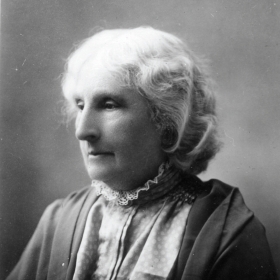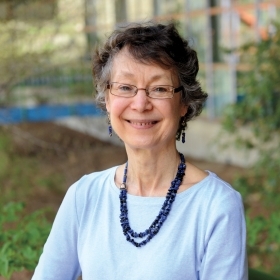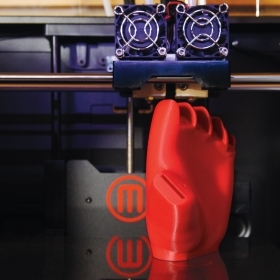The letters of Anne Whitney, a 19th-century American sculptor and poet, are a treasure trove of information about the globe-trotting intelligentsia of her time.

Anne Whitney, ca. 1912
The letters of Anne Whitney, a 19th-century American sculptor and poet, are a treasure trove of information about the globe-trotting intelligentsia of her time. The nearly 4,000 letters in the Anne Whitney Correspondence Collection in the Wellesley College Archives include tidbits about literature, politics, prominent artists of the day, popular tourist activities in Europe, and the power of oysters to cure seasickness, to name just a few topics.
Now, Professor of Art Jacqueline Musacchio ’89—with help from Jenifer Bartle (manager of the College’s Digital Scholarship Initiatives) and Ian Graham (director of library collections)—has launched Dear Home: The Letters of Anne Whitney, a crowd-sourced transcription site that will eventually make all of Whitney’s letters available for the wider Wellesley community. When the transcription project is complete, it will be made public and searchable on the web.
Musacchio first looked at the letters in 2006 because she was conducting research about a friend of Whitney’s. She quickly became very taken with Whitney herself. A Massachusetts native, Whitney is known for her statues of Samuel Adams for the US Capitol building, of Leif Erikson and Charles Sumner for public sites in Boston, and of English reformer Harriet Martineau, which presided over College Hall’s five-story Centre until it was destroyed in the 1914 fire. (See “A Monumental Loss,” winter ‘14.)
In fall 2012, Musacchio offered a first-year seminar called Art, Tourism, and Gender in Late Nineteenth-Century Italy, which used Whitney’s letters as original source material in the coursework. And then in fall 2013, she taught an upper-level seminar on the same topic, and these students began deciphering the spidery handwriting and transcribing the letters for the Dear Home project.
“The investment of time in reading them is so tremendous. And you never know when there might be a reference to something that’s going to be very valuable,” says Musacchio. “It might just be about the weather for three pages, but then suddenly it’s about Charles Dickens coming and giving a reading in Boston’s Athenaeum.”
But the surprises that come while reading the letters and the sleuthing that’s required to make sense of them is part of what makes the Dear Home project so rewarding, says Musacchio. She remembers one student reading about a play being staged in Paris, and after some quick online searching, she found a playbill for that very performance. Still, transcribing is a painstaking job, which is why Musacchio hopes that opening Dear Home to alumnae and everyone on campus will make it go faster. “We want to enlist the entire Wellesley community in this project. Everyone will bring different interests to it,” Musacchio says.
To register to transcribe Whitney’s letters, click here.


